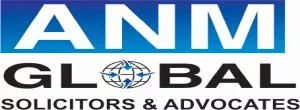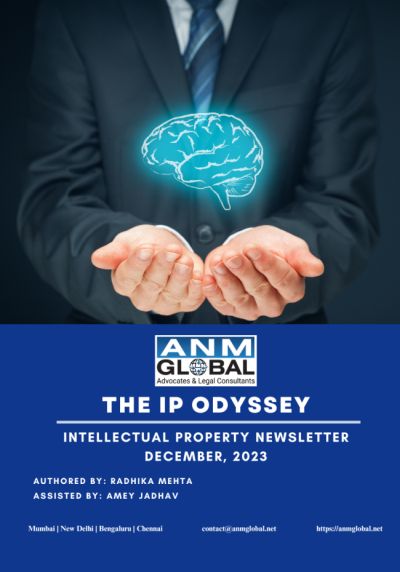Dive deeper into the intricacies of these legal rulings with insights authored by our Associate, Radhika Mehta, complemented by the valuable contributions of Intern Amey Jadhav. Their collaborative effort aims to provide our readers with a thorough understanding of the legal nuances shaping the IP landscape in India.
BENNETT, COLEMAN WINS 'NOW' TRADEMARK BATTLE AGAINST US-BASED FASHION CHANNEL
The petitioner had challenged the registration of the defendant's trademark 'NOW' in class 38, claiming that it violated the 'Now' family of marks owned by the petitioner. By applying the antidissection rule and relying on a series of precedents as well as Section 17(2)(a), the Court came to the conclusion that "Now" was the dominant portion of the mark. As a result, the Court invalidated the respondent's registration under class 38.
DELHI HIGH COURT DECLARES 'BURGER KING' AS A WELL-KNOWN TRADE MARK
In a ruling by the Delhi High Court, "Burger King" has been recognised as a well-known trademark. This decision was made after taking into consideration the extensive amount of time that the mark and its modifications have been utilised for fast foods, particularly burgers.
SUBSTANTIAL REPUTATION ESSENTIAL FOR TRADE MARK PROTECTION BEYOND BORDERS, RULES DELHI HIGH COURT
Delhi High Court dismissed an interim injunction application by Bolt Technology OU against Ujoy Technology Pvt Ltd for using the BOLT Mark in relation to EV charging stations. The Plaintiff argued that the Defendant's use of the BOLT Mark equated to passing-off services as originating from the Plaintiff. The Court disagreed, stating that the Plaintiff's taxi services and EV charging stations are not similar or allied, and that the Plaintiff's reputation in India is not sufficient to make claims. The Court also noted that the Plaintiff's intention to enter the Indian market is not sufficient to establish consumer confusion.
WORDS OF COMMON ENGLISH USAGE CAN'T BE REGISTERED AS TRADEMARK, NO MONOPOLY CAN BE CLAIMED BY ANYONE
Delhi High Court has recently ruled that words that are commonly used in English cannot be registered as trademarks, and that the person who registers such a mark cannot even claim to have monopoly rights over the mark.
The words that are commonly used in English cannot be monopolised, says Justice C. Hari Shankar. If this were to occur, then the entire language would be hijacked by a small number of people, which is not something that can be allowed.
MERE USE OF 'MAKEMYTRIP' AS KEYWORDS IN GOOGLE ADS PROGRAM IS NOT TRADEMARK INFRINGEMENT
The appellant, Google LLC, had filed an appeal in the Delhi High Court challenging an interim judgement passed by the Ld. Single Judge. The order restricted Google from using the term 'MakeMyTrip' as a keyword on the Google Ads Programme, whether it is used together, in combination, with or without spaces. The Division Bench, consisting of Vibhu Bakhru and Amit Mahajan, JJ., set aside the previous order passed by the Ld. Single Judge. They concluded that the Single Judge's opinion, which stated that Booking. com's use of the trademark 'MakeMyTrip' as a keyword, infringes Section 29(4)(c) of the Trade Marks Act, 1999, was incorrect. The Court also opined that the use of trade marks as keywords could not, by any stretch, be construed as applying the registered trade mark to any material intended to be used for labelling or packing goods, as a business paper, or for advertising goods or services.
FACILITATING DOMAIN TRANSFER ALSO FALLS UNDER FORM OF USE UNDER THE TRADEMARK ACT
Within the context of this dispute, the Plaintiff, Jockey International Inc., asserts that the Defendant No. 9, has disobeyed previous court orders that restricted the use of several domain names, one of which is www.jockeystorefranchise.com. The Defendant asserts that they are not participating in any other form of commercial usage of the domain name and are just facilitating the transfer of domain names. In its interpretation of "use of a mark" and section 29 of the Trademark Act, the Court came to the conclusion that doing anything like aiding domain transfer is likewise considered a kind of use and is therefore prohibited under earlier rulings.
OVERALL IMPRESSION OF DESIGN IS WHAT MATTERS, TRADE VARIANTS AND MINISCULE DIFFERENCES CAN BE IGNORED, RULES DELHI HIGH COURT
The Delhi High Court partially declined interim relief to Havells India Limited in a suit for design infringement against Polycabs India Limited. The Plaintiff claimed the Defendant infringed on three of its registered designs (2016, 2021, and 2022). The Court differentiated the treatment of the Suit Designs from the Plaintiff's registered designs, focusing on the visual appeal and overall impression of the actual end products. The Court dismissed the Plaintiff's plea for the 2021 design due to insufficient evidence, and maintained the interim injunction for the 2016 design.
REGISTERED PROPRIETOR CAN BE TREATED AS AN ENTITY INDEPENDENT OF AUTHORISED USER UNDER GI ACT, 1999
The Plaintiff, who was the Registered Proprietor (RP) for whom the Geographical Indication (GI) of Scotch Whisky was given, said that the RP could file a suit on their own, without the Authorised User (AU) being involved. Following the GI Act, the Court agreed, saying that the RP is a separate body and not under the AU.
DELHI HIGH COURT TEMPORARILY RESTRAINS CORNERSTONE SPORT AND ENTERTAINMENT PVT LTD. FROM PLAYING COPYRIGHTED SONGS OWNED BY PHONOGRAPHIC PERFORMANCE LIMITED
The Delhi High Court has temporarily restrained Defendants and their representatives from playing any recordings that belong to the Plaintiff's copyright and appear on the Plaintiff's website without obtaining a prior license. The Plaintiff, Phonographic Performance Limited, claimed that the recordings were being played without a license, despite the Plaintiff's attempts to dissuade them. The Court ruled that the infringement of copyright was ongoing and that failure to grant an injunction would result in continued infringement. The Court also ruled that the principles of balance of convenience and irreparable loss justified the grant of an interim injunction. The case will be listed before the court on 15-01-2024.
NO COPYRIGHT IN IDEAS OR THEMES
The Delhi High Court dismissed a plea by filmmaker Bikramjeet Singh Bhullar to halt the streaming or broadcasting of his film, 'Shamshera', on Over-TheTop (OTT) platforms. Bhullar had filed a lawsuit against Yash Raj Films, alleging that the plot and theme of 'Shamshera' were copied from his work 'Kabu Na Chhadein Khet'. Justice Jyoti Singh rejected the plea, stating that Bhullar had attempted to claim a monopoly over themes common to most Bollywood movies. The Court concluded that a comparison of Bhullar's script and the film 'Shamshera' does not suggest that one is a substantial copy of the other. The Court ruled that the similarities between Bhullar's script and the film outweigh the alleged similarities, and that similar features in various films cannot be considered copyright infringement. This ruling reaffirms the principle that copyright protection does not extend to ideas, themes, or plots but only to the expression of these ideas.
BOMBAY HIGH COURT HOLDS THAT IN A SUIT FOR GROUNDLESS THREATS, THE COURT CANNOT GIVE DETERMINATIVE FINDING ON COPYRIGHT INFRINGEMENT
The Bombay High Court ruled that an inquiry under Section 60 of the Copyright Act cannot determine whether there is no copyright infringement, as it would pre-empt and prejudge an action for infringement. The Court ruled that the inquiry had transgressed the remit of determination under the enacting part of Section 60, as it ventured into the realm of copyright infringement in substance.
SECTION 33 WILL NOT RESTRICT THE RIGHTS OF THE COPYRIGHT HOLDER TO DEMAND A LICENSE FOR EXPLOITATION OF THEIR SOUND RECORDINGS
The Plaintiff who possesses a substantial number of sound recordings claims that the Defendant, who manages multiple venues is playing copyrighted songs without permission or the required licences. The Defendant claimed that his usage is safeguarded by Section 33, contending that as the Plaintiff is not a copyright society, it lacks the authority to demand the Defendant to get a licence. The Court dismissed the Defendant's argument and citing the case of Phonographic Performance Limited v. Canvas Communication, determined that Section 33 does not limit the copyright holder's ability to require a licence for the use of their sound recordings. As a result, the court issued a temporary injunction against the Defendant.
PHARMACYCLICS, JOHNSON & JOHNSON WIN PATENT INFRINGEMENT SUIT FOR ANTICANCER DRUG
The Plaintiffs held the licence for a pharmaceutical called Ibrutinib, which the Defendants were also producing and selling under several brand names. After a post-grant opposition, the Plaintiffs' patent was invalidated, but this decision was later overturned by a ruling of the IPAB. The Defendants contended that the patent in question was illegal and that the Chairman of the IPAB, who rendered the judgement overturning the aforementioned ruling, was not qualified to retain the position due to the expiration of his tenure. Contrary to this, the Plaintiffs attempted to invoke the de facto theory, and the Court consented to affirm the legitimacy of the IPAB ruling. The Court determined that there were no valid reasons to delay the implementation of the IPAB ruling, and confirmed the validity of the Plaintiffs' patent in the lawsuit. The Court issued an injunction prohibiting the Defendants from producing and promoting the drug. However, recognising the substance's significance in treating illnesses including cancer, the Court permitted the Defendants to deplete their existing stock.
DELHI HIGH COURT EMPHASISES THE IMPORTANCE OF PRINCIPLES OF NATURAL JUSTICE IN PATENT PROSECUTION PROCEEDINGS
The Delhi High Court ruled in favour of Procter and Gamble Co., arguing that the Controller of Patents and Designs failed to grant the company's patent application due to a lack of inventive step. The Court emphasized the importance of timely communication of objections, swift decision-making after pre-grant proceedings, and expeditious patent grants. The Court also emphasized the need for a reasonable period of three to six months to prevent arbitrary delays. The Court set aside the order and instructed the Patent Office to update the application status.
MADRAS HIGH COURT CLARIFIES PROCEDURAL ASPECTS OF POST-GRANT OPPOSITION IN PATENTS
The Madras High Court has ordered a fresh opposition board to be constituted in a post-grant opposition proceeding involving Optimus Drugs Private Limited and Symed Labs Limited. The Petitioner was granted a patent for its invention, "An improved process for the preparation of Linezolid," in 2017, which was opposed by Symed Labs Limited in 2018. Symed submitted additional evidence, and the Opposition Board issued its recommendations in 2019. The Petitioner argued that Symed was not entitled to file additional evidence and that the Opposition Board should consider the additional evidence. The Court found it meaningless for the matter to be decided based on old recommendations and directed the Controller of Patents and Designs to form a new Opposition Board within 30 days.
PATENT OFFICE EXPECTED TO PASS FINAL ORDERS WITHIN REASONABLE PERIOD NOT EXCEEDING 3 TO 6 MONTHS
The Delhi High Court has stated that the Patent Office is required to issue final decisions within a reasonable timeframe, often ranging from three to six months, following the completion of oral hearings. The duration may vary depending on the intricacy of the case. Justice Prathiba M Singh emphasised that the Patents Act, 1970, and its Rules have specific and rigid timelines for various stages, including the filing of the examination request, preparation of the examination report by the patent examiner, review of the report by the Controller, issuance of the statement of objections, response to the objections, and the deadline for submitting the patent application.
AI COMPANIES TO DISCLOSE COPYRIGHT TRAINING DATA IN UNITED STATES
According to Bar and Bench, the New York Times has sued Microsoft and OpenAI for copyright infringement with their generative AI tools. Microsoft's Bing Chat, now Copilot, and OpenAI's ChatGPT used millions of copyrighted items from the newspaper to train their AI capabilities, according to the publication. It further claimed that these programmes replicate content and misrepresent the article.
The action, filed by Susman Godfrey LLP and Rothwell, Figg, Ernst & Manbeck, PC, claims this has hurt NYT subscription, licencing, advertising, and affiliate revenue. After months of discussions, NYT claims the Defendants insisted on "fair use" protection in a New York Court. NYT has sought damages from the two corporations for allegedly duplicating and using its content. In recent years, media organisations have raised concerns regarding disinformation and unattributed use of generative AI tools.
ANKIT SAHNI'S AI "CO-AUTHORED" ARTWORK DENIED REGISTRATION BY US, CONTINUES TO BE REGISTERED IN INDIA
The Review Board of the United States Copyright Office (USCO) reaffirmed the decision to not grant copyright registration to the artwork developed by Ankit Sahni titled "Suryast." This artwork was produced through the application of artificial intelligence technology. The artwork had been denied registration by the Copyright Office in the past due to the absence of human authorship, which is required to provide evidence in support of a copyright claim. It is interesting to note that the artwork was also approved for registration in India in November of 2020, which caused controversy in that country.
The content of this article is intended to provide a general guide to the subject matter. Specialist advice should be sought about your specific circumstances.



